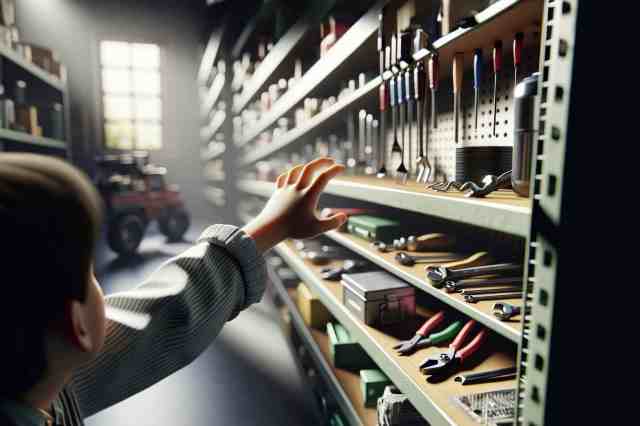When you have children, you spend a great deal of time making sure that your house is safe. You put plastic caps in your electrical outlets and locks on your cupboard doors. But what about your backyard and garage? According to the Centers for Disease Control, around 15 children under the age of 14 die from pool drownings every year. If you want your child to avoid being a statistic, then you need to learn how to childproof your backyard and your garage. You need to develop an eye for the hazards that exist and devise effective ways to eliminate them.
Importance of Childproofing
When you take the time to childproof your yard and garage, you are protecting your child from a number of dangerous hazards. The goal of childproofing is to prevent your child being injured in a way that could affect them for the rest of their lives. The ultimate goal, of course, is to protect your child from a fatality.
Children often do not understand many of the chemicals and dangerous items that can be found in a yard or a garage. While most parents do their best to teach their children the best ways to stay safe when they are playing in the yard, a parent cannot be watching their child every minute of every day. Childproofing the yard and the garage prevents children from making mistakes that could be dangerous and potentially fatal.
How To Childproof the Yard and Garage
Your backyard is where your children will spend a great deal of time playing, which means you will want to make sure that the yard is secured. For younger children, you will want to have a fence surrounding the yard that is locked at all times. You should also scour the yard to remove any broken glass, sharp stones, or sharp sticks that could be hidden in the grass. Another good step is to create backyard safety rules for your children and go over those rules regularly. For example, stress the importance of not playing with fire and make it mandatory that an adult be present when the children are playing with the hose or sprinkler.
When you have children, then you’d better be ready to invest in cabinets and locks for the garage. The lawn mower needs to be secured against the wall with a chain and lock. If possible, it would be more effective to hang the mower on the garage wall away from the children’s reach. Laundry supplies, lawn chemicals, and other hazardous substances need to be put in cabinets that are up and out of your children’s reach. Even when the dangerous chemicals are up and out of the way, you still need to lock the cabinet doors in case the children start to get creative with ladders or chairs. The automatic garage door opener should also be up and out of reach of little hands. If there is a furnace or water heater in the garage, then you can build a barrier to keep your children away and avoid having your children burned. You should also lock up all of your tools in cabinets that your children cannot open. Do not leave tools out on your workbench. When handling tools or dangerous chemicals, consider storing these items in an external structure such as a backyard shed or metal building secure away from children.
Hazardous Products Found in the Garage
Some of the more hazardous materials found in your garage include:
- Gasoline
- Motor oil
- Lawn chemicals
- Cleaning solutions
- Antifreeze
- Pest control poisons
- Paint
- Paint thinner
- Paint remover
Garage Storage/Hazard Facts
It can be economically prudent to store chemicals in old milk and juice containers, but it can also create a hazardous situation. If children find these hazardous materials stored in household containers, then they may mistake the chemicals for food and consume them.
There is another problem that comes with storing chemicals in household containers. In most cases, the household containers are not approved storage vessels for those dangerous chemicals, and that means that the chemicals could eat through the packaging and cause a dangerous leak. Always store your chemicals in their original containers to prevent hazardous leaks.
People use mothballs to try and keep away pests, which means scattering them all around the garage. The problem is that mothballs are poisonous to pets and to your children. The other issue is that mothballs are not very effective at keeping away pests.
The best way to contain a chemical leak from a pesticide container or even a car battery is with sand or kitty litter. That is why you should always keep a bag of sand or kitty litter in your garage at all times.


